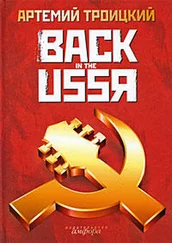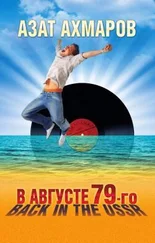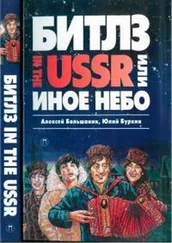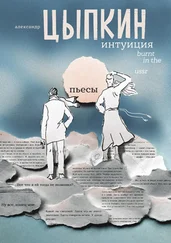* * *
“See him over there?” Death Number One points to a bull-necked man working in the next row from ours, muscles bulging as he pushes gloves through his machine. “He’s known as ‘Cannibal.’ He escaped from a Kolyma camp in the 1950s. He and his mate took a fatted calf with them. They fed up the young lad before their escape and then killed him when their supplies ran out. Can you imagine them, patting him on the shoulder in encouragement in order to feel the extra flesh on him. How can a man be so cynical?”
“That’s not cynicism, Pashka. Someone who criticises a cannibal for not washing his hands before eating would be a cynic. There are simply no words to describe what that man did.”
There is nothing special about cannibalism. People have been driven to it often enough, even in our century, during famines and the siege of Leningrad. But those were extreme situations. I’m curious to know how one human being could deliberately prepare another for the slaughter. I begin to chat to Cannibal after work, gradually broaching the subject that interests me.
Cannibal has spent most of his life in prison and is already in his sixth year at Ashkhabad. He doesn’t look like a typical zek. He still has the physique of a sturdy peasant — which is what he was before he received his first sentence for stealing wheat. Physical strength enabled him to survive the camp mincing machine, but the experience taught him to believe in nothing but the principle, ‘You die today and I tomorrow.’ A morose man, Cannibal goes about his business in silence and never initiates a conversation. He subscribes to many papers and journals but it’s useless to ask him to lend you something to read after work.
I never discover what I want to know. Cannibal tells me his only regret is ending up in jail; everything else he did was justified. To all my sly questioning he simply replies: “You’d have done the same in my place.”
Cannibal has been behind barbed wire for so long he has forgotten what the outside world looks like. When a modern streamlined bus drives into the zone he breaks his usual silence: “Fuck me! Would you look at that — a train without rails!”
Like Cannibal, there are many zeks who have been in camps for so long they have grown used to their loss of freedom. They feel at home behind barbed wire. Several times I see a prisoner reach the end of his sentence only to be driven through the gates by force. One epileptic Kalmyk has no one waiting for him on the outside. He faces a choice between an asylum or life on a miserable pension. After his release he went into town and threw stones at shop windows until he was arrested and sent back to the camp.
The Uzbeks say that beautiful dreams are half our wealth. Poor is the man who has lost his dreams or has never had any in the first place; the camps are full of such people. Many Soviet citizens, especially peasants, live in such terrible conditions that they could swap places with a zek without noticing any difference in their standard of living. Both prisoners and free people eat the same disgusting food; the pitiful rags they wear are identical.
People on the other side of the fence often commit petty theft while shrugging off the consequences. ‘They can’t send me anywhere worse than prison; they can’t give me less than a pound of bread,’ goes the eternal refrain. When a person reaches that stage he is past caring what stupid crime he commits. Judges label as ‘malicious’ crimes that are committed out of simple despair, by people without beautiful dreams.
Every camp inmate develops a shell around himself but few are as hardened as Cannibal. At the other end of the scale are those who could discard their shells quite easily if only they were given the chance to live as a human being. One such zek is my friend Igor Alexandrovich. With his long thin head covered in prickly stubble, Igor looks like some kind of exotic cactus. We call Igor Alexandrovich by his full name and patronymic instead of the customary nickname. He earned this exaggerated respect by his singular behaviour. Years in prison have hardly affected his speech. He rarely swears and usually blushes when he does. He calls everyone by the formal ‘you,’ and speaks in the old-fashioned language of the pre-revolutionary intelligentsia. Igor Alexandrovich claims his father was an admiral who went over to the Bolsheviks after the revolution. Like all camp stories this is probably an exaggeration, but there is no doubt that Igor Alexandrovich comes from a refined background. What he knows about literature, music and theatre you don’t pick up in camp libraries. He studied medicine in Leningrad but on graduating was arrested and sentenced to be shot under article 58. The sentence was later transmuted to ten years.
Igor Alexandrovich is ashamed of his record and will only say that he was imprisoned for practising illegal abortions. He has been in Kolyma and Norilsk. Because of his medical training he was put to work in camp hospitals. Thanks to that he survived.
Igor Alexandrovich was released after the 20th Party Congress but as a former zek his degree was no use. He went down to Central Asia where he found work in a Tashkent mortuary. After he lost his job through drinking he became a tramp and beggar.
Everyone likes to listen to Igor Alexandrovich’s stories and it seems that he has come to believe his own inventions. He tells us he always carried at least two guns of foreign make, and that he has lost horses, women and dachas at cards. Famous actresses were in love with him and he hired whole restaurants for his week-long parties.
Because of his short sight, Igor Alexandrovich finds sewing difficult and so he never meets his work quota. This means he can’t buy tobacco in the camp shop, and it leaves him squirming. Yet if I hold out my pack to him he declines with elaborate excuses. So I resort to a more devious method. Leaving a packet of Prima on my bench I go to the other end of the workshop. I return to find several crushed and broken cigarettes in my pack, where they have been too hastily replaced. From then on I resort to this method of giving Igor Alexandrovich a smoke. Sometimes he’s so overcome by shame that he drops his precious cigarette and has to scrabble around for it amid the grease and slime of the floor.
Igor Alexandrovich enjoys dispensing medical advice. When I cut my thumb he delivers a lengthy discourse on haemophilia. “On your release,” he tells me, “you should go to take the waters at a spa. Preferably Karlsbad.”
“I shall certainly follow your advice,” I assure him.
A radio loudspeaker hangs over our heads in the workshop but it is hard to hear and anyway we aren’t interested in the nonsense spewed out by Moscow. But when I catch the strains of an old romance, Grief is my star , I switch off my machine to listen. The noise of the workshop bothers me and I glance around in annoyance. No one else has stopped except Igor Alexandrovich who is standing with his head stretched up towards the loudspeaker. Tears as large as a child’s roll down his stubbly cheeks. I don’t know where he is at this moment but he sure as hell is not in prison. I turn away so that he won’t notice me looking at him.
But later Igor Alexandrovich comes up to me. “Do you remember the song Grief is my star ?”
“Of course, but I forgot the words.”
“You don’t need to remember them. Words only give a song its shape. When you love something or someone very much its form has no significance. All lovers know this.”
Igor Alexandrovich is released several months before me and the camp is a sadder place without him.
Finally my own release comes. I intend to hang around in the town waiting for Death Number Two who gets out tomorrow. We plan to head for the Kuban where Death has some relations who might give us work. However the camp authorities have other ideas and they put me straight onto a train to Krasnovodsk, that most desolate of cities.
Читать дальше
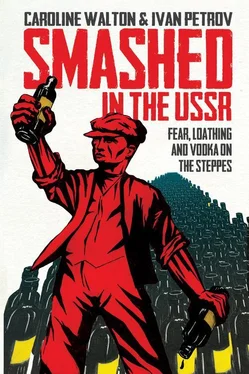
![Геннадий Марченко - Перезагрузка или Back in the Ussr. Книга 1. [СИ]](/books/53319/gennadij-marchenko-perezagruzka-ili-back-in-the-uss-thumb.webp)


